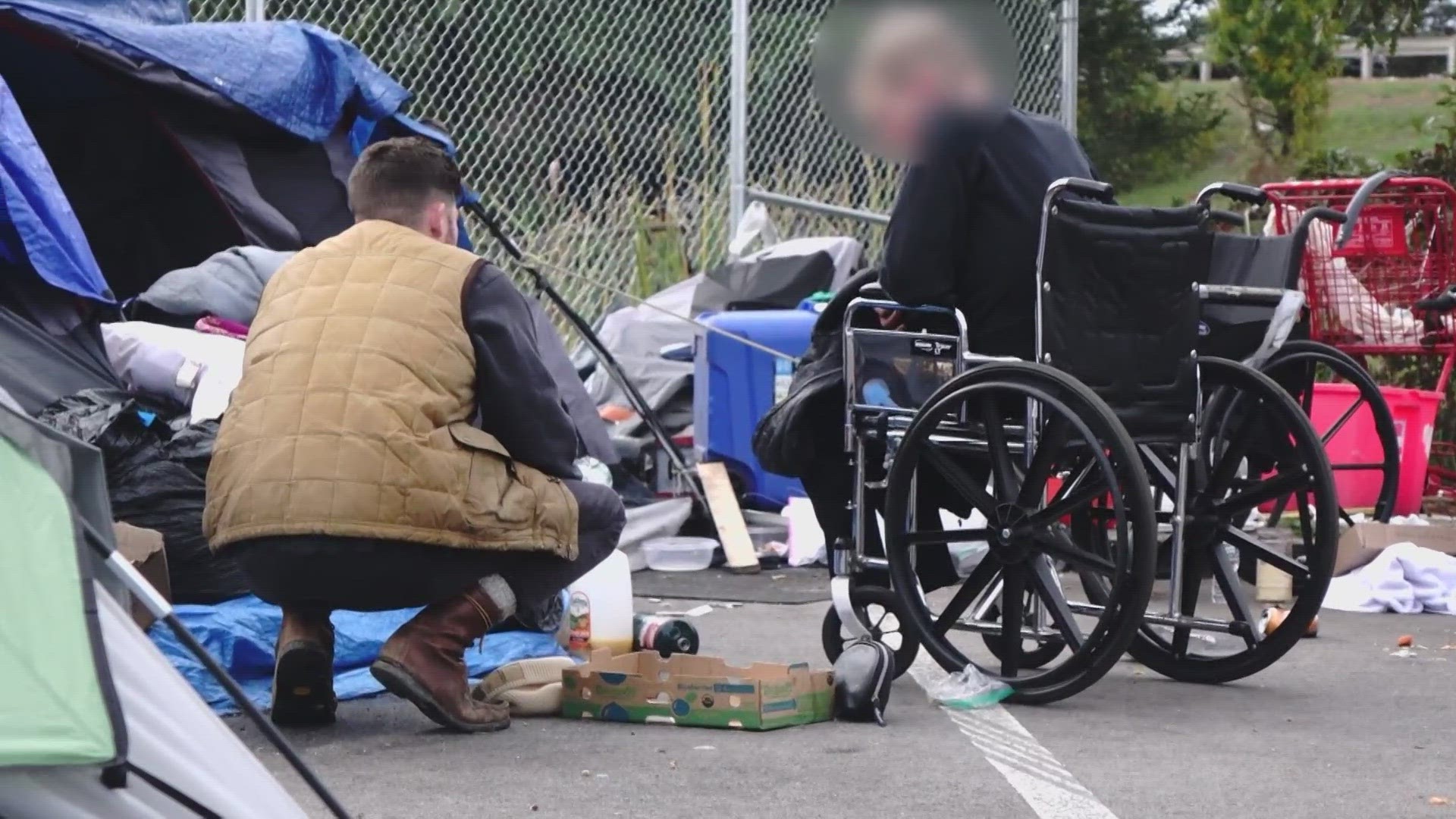PORTLAND, Maine — The homelessness crisis in Maine is complex: people living in tents are dealing with a host of untreated issues, including severe physical and mental health, as well as substance use disorder.
State and city leaders say the availability of detox and treatment programs is scarce, and waitlists are months long. Only three detox, or medically supervised withdrawal, facilities accept MaineCare. Plus, the state is in the midst of a health care workforce shortage, meaning even if Maine does add the 200 projected new beds coming online in the next year, there may not be enough staff to care for the patients the beds could serve.
Portland Police Chief Mark DuBois said the lack of treatment, and rampant drug use in the encampments is perpetuating the crisis.
"There's a very big discussion about this being a housing crisis. My view on that is, it's a combination of some limited housing. There's also a huge impact of drug use. That's fueling a lot of this," Chief DuBois said. "There is definitely a limited availability of beds for us to bring people to some type of program."
Hospital emergency departments may help a person in crisis, but temporarily. The Spurwink Living Room Crisis Receiving Center in the Bayside neighborhood has social workers on site to bridge the gap from crisis to treatment. Again, the struggle is the wait.
"There's limited space. There's a long waiting list," DuBois said.
The first step out of substance use disorder is detox, now called "medically supervised withdrawal." Only three of those facilities in Maine take MaineCare: Milestone Recovery and Pine Tree Recovery in Portland, and Wellspring in Bangor. There are other facilities that take private insurance.
Both Milestone and Wellspring are adding more detox beds. Wellspring executive director Suzanne Farley said the organization is adding five detox beds to its current 10, plus 15 new treatment beds for short-term residential stays (30-45 days). Milestone is set to double its capacity.
From detox, the next step for many is residential treatment: a place where people spend weeks or months living in a facility and get medication to recalibrate their brains after years of drug use.
"If you've been using, injecting drugs, for 10 years, it's going to take quite a while in that treatment phase and then in the recovery phase before your brain gets rewired to a normal status," Gordon Smith, Maine's Opioid Response director, said. "We have several facilities, but we don't have enough beds yet to meet the demand."
Smith said the state will add 200 treatment beds within the next year. The next challenge will be finding people to care for the patients.
"It's relatively easy to throw money at a project and build beds. You have to have qualified, licensed people," Smith said.
A scarcity of resources leaves some of Maine's most vulnerable with little long-term help.
City of Portland Health and Human Services Director Kristen Dow said staff have helped 13 people living in homeless encampments move into the city's Homeless Services Center since Oct. 6, including three more since Sept. 15, a total of 19 in just over a month. Wednesday alone, shelter staff filled four open beds at the HSC in one hour by reaching out to people living at the Marginal Way encampment.
Dow acknowledges there are dozens of people to house before the Nov. 1 deadline to clear the Marginal Way encampment. The HSC and other shelters are full every night. She hopes that shifting asylum seekers in the HSC to a different emergency shelter set to open in November could open more beds at the HSC, designed to help people with a complex combination of health struggles.
"This is a public health crisis and we need to look at it like that and try a really holistic approach to address it for the individuals who are there, but also systematically," Dow said. "We talk a lot about the people who are in the encampments for sure, but we are the Health and Human Services Department for the entire city of Portland, and that includes both the housed and the unhoused. So how can we address this issue and really work to solve this for both communities?"
Cumberland County District Attorney Jackie Sartoris said the lack of detox and treatment beds also affects her ability to connect people with the help they need after being criminally charged.
"I think just being able to start to say out loud, 'what are we missing?' needs to be the conversation that we engage in over the next few weeks, because I'm actually really concerned that whatever decision the city makes and the state makes about the encampments dispersing, the problem does not give us more resources to deal with that."
"We can't work on their substance use disorder if they're in a tent and we're going to move that tent tonight or expect them to move someplace," Smith said.
Substance use, as well as detox and treatment beds, are just a few factors out of many that lead to someone becoming and staying homeless.

